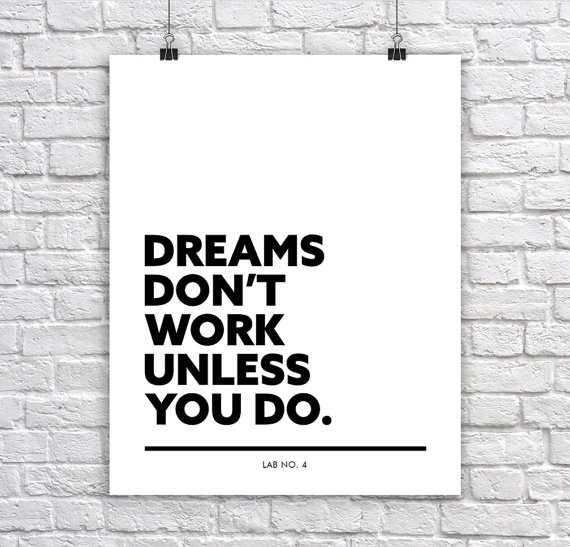When I work with small businesses, the subject of goals is bound to come up. To understand what a company is working towards helps to drive strategies at play. As helpful as goals are, having a plan of action is better.
Companies who have goals set in stone can’t be agile. And agility is the key to success — especially where social media is concerned. Algorithms change. Platforms change. Audiences change. As a result, businesses need to embrace change and have workflows in place that can adapt easily.
It’s something I’ve given a lot of thought to.
In college, I studied motivational psychology. My thesis examined why some athletes were able to rebound after injury, while others didn’t. In graduate school, I studied the driving force behind communities. The common theme is agility (and a high degree of intrinsic motivation). Being able to adapt to your surroundings or new realities is critical to one’s success.
So why, when it comes to business, are we force-fed the idea that we have to have big hairy audacious goals? Why aren’t we encouraged to have a plan of action, instead? Probably, because it requires work. It’s easier and more impressive to say that “by 2020, I plan to be a billionaire”, instead of saying how you plan to make it happen.
At the end of 2012, management consultant Peter Bregman, in an article for the Harvard Business Review, asked readers to Consider Not Setting Goals in 2013. I still find it relevant, even in 2014, when so many entrepreneurs and business owners waste so much of their time setting goals, just for the sake of having goals or proving to others that they can dream big. According to Bregman,
When we set goals, we’re taught to make them specific and measurable and time-bound. But it turns out that those characteristics are precisely the reasons goals can backfire. A specific, measurable, time-bound goal drives behavior that’s narrowly focused and often leads to either cheating or myopia. Yes, we often reach the goal, but at what cost?
Exactly. A goal isn’t a wish. Declaring your goals doesn’t make it so. Doing the work will make it happen — and even then it won’t always go according to plan. If you’re flexible enough, you’ll be able to adapt as needed to stay on path — or recognize that your path has changed altogether.
Photo credit: by LabNo4 via easy

